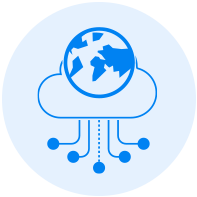
More Than a Bill: Why It’s Time for CFOs to Change How They Think About Utility Data
Urjanet Inc | July 20, 2017 | Energy & Sustainability
CFOs are no stranger to utility bills. After all, energy is the third largest budget item for most US companies.
But most CFOs look at utility bills as just that — bills and nothing more. It’s time to change that. As it turns out, utility bills actually contain mountains of data that CFOs can use to their advantage. And when that happens, CFOs can stop looking at energy as an unavoidable cost that pays nothing in return and start looking at it as an investment that pays dividends.
The Modern CFO Cares About More Than Just Finances
Of course finances will always be a primary point of interest and responsibility for CFOs, but in 2017, the CFO’s role has expanded well beyond managing finances.
Today, CFOs are also responsible for maintaining relationships with stakeholders and investors, mitigating risk and driving business value, to name a few of many responsibilities. Perhaps most notably, a recent Accenture survey finds that 75 percent of senior finance executives believe the CFO’s role in supporting strategic decision making has increased over the past several years.
In order to succeed on all of these fronts, CFOs must rely on data, and utility data is no exception.
Utility Data and the CFO: A Valuable Partnership
Once CFOs stop looking at utility bills purely as a cost center and start looking at them as a data resource, they’ll find significant value in return.
The first step to changing the relationship between CFOs and utility bills is ensuring proper data management, as the data contained in utility bills must be collected and standardized across providers in order to allow for any data analysis. To ensure complete, accurate and timely access to data, this management should be handled via automated utility data aggregation (the alternative would be handling the process manually, which is a tedious and error-prone task that causes delays in reporting).
Once proper data management is in place, CFOs can then use utility data for a variety of strategic initiatives, including:
Optimizing the Financial Aspect of Energy Management
Energy will always be costly, but with proper data management, it doesn’t have to be nearly as costly as it is today for most organizations. Just look at Cox Enterprises, which cut energy costs by 10-30% in various markets due to improved utility data management.
Watch the case study to learn how Cox Enterprises uncovered immediate savings opportunities.
Specifically, CFOs can use proper utility data management to help cut costs in two ways:
- Costs associated with poor data: Automated utility data aggregation can improve data quality and access, eliminating the high costs that come from having inaccurate, incomplete and/or out of date data.
- Costs associated with wasted or inefficient energy consumption: Insight into complete, accurate and timely utility data can identify areas of waste and opportunities to cut down on inefficient or unnecessary energy consumption.
Increasing Transparency Into Costs Across Facilities
Proper utility data management can provide transparency into utility costs by allowing CFOs to understand the data at a more granular level, including differentiating tariffs and other set charges from charges based on demand and understanding spend across different facilities.
In turn, this transparency can help CFOs identify areas for improvement, track progress and intelligently negotiate rates in deregulated markets.
Empowering Departments Across the Organization With Accounting Data
At a time when it’s up to CFOs to help mitigate risk for their organizations, ensuring that accounting data gets shared throughout the organization can make a big difference. For example, utility bills often go straight to accounting and nowhere else.
However, utility bills contain data that can benefit users across the organization, making it important to share them with departments like facilities, real estate, procurement, energy management and the list goes on. These departments can then use utility data to launch new initiatives and make more informed, strategic decisions — all thanks to CFOs making the data easily accessible.
Increasing Accounting Efficiency
Proper utility data management can also make accounting far more efficient. Without proper utility data management, accounting must deal with the tedious, manual work of reviewing bills to make sure they’re correct. With proper utility data management, including automated utility data aggregation, accounting can review bill data to validate charges and understand normalized charges across facilities far faster and easier.
In turn, this improved data can save accounting time, simplify reporting and improve forecasting on energy spend, among many other benefits.
It’s Time for CFOs to Recognize the Value of Utility Data
There’s no denying that energy is costly and it always will be, but it doesn’t have to be purely a cost center. By investing in better data management for utility bills, CFOs can stop looking at looking at utilities purely as bills that must be paid and start looking at them as a strategic asset that can help drive value for the entire business.
If you’re ready to learn how Urjanet can help you leverage your utility data, contact us today.
Related Resources:
- A Guide to Using Utility Data for the CFO
- Utility Data and the CSO: An Obvious Match Hiding in Plain Sight
- 5 Use Cases for Whole Building Interval Data
If you like what you’re reading, why not subscribe?
About Urjanet Inc
Urjanet, the global leader in utility data aggregation, simplifies how organizations access and use utility data, enabling them to focus on their business. Our technology collects, processes, and delivers data from over 6,500 electric, natural gas, water, waste, telecom, and cable utilities worldwide.
You May Also Like
Support Business Continuity by Embracing ESG
Honor Donnie | March 18, 2022 | Energy & Sustainability
